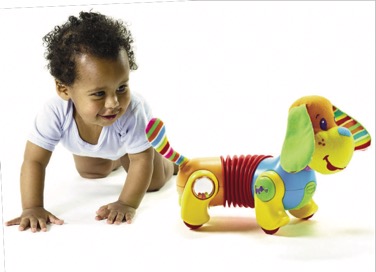Wandering and elopement behaviors can pose unique safety risks for children and adults on the autism spectrum. Luckily, there are many accessible tools to help keep these individuals safe. Below, Milestones Autism Resources Program Director Beth Thompson, MSSA, LSW highlights some great tips and resources to utilize if your loved one is one of the many individuals with ASD who are prone to wandering.
 Take advantage of free resources – The National Autism Association is currently accepting applications for their very popular, free Big Red Safety Box – the box includes 2 GE wireless door or window alarms with batteries, a MedicAlert membership, pendant or bracelet and one shoe ID tag, safety alert window clings for homes and cars and much more.
Take advantage of free resources – The National Autism Association is currently accepting applications for their very popular, free Big Red Safety Box – the box includes 2 GE wireless door or window alarms with batteries, a MedicAlert membership, pendant or bracelet and one shoe ID tag, safety alert window clings for homes and cars and much more.
Our very own Northeast Ohio Connecting for Kids also has wandering safety kits for local families. There is no cost for their kit and families can be connected with parents near them that may be dealing with the same elopement issues.
Contact your local County Board of Developmental Disabilities (CBDD) – If your student, child or client is struggling with behaviors that may pose safety risks for them it’s important you notify the County Board of Developmental Disabilities that the individual is connected to. County Boards of DD can sometimes assist in schools, homes and in the community to develop behavioral plans that will help your loved one stay safe.
Ensure your child can swim – Accidental drowning accounts for 90% of lethal outcomes from wandering. If there is any chance your child or loved one could be at risk for being drawn to water, it is important to make sure they know basic water safety. Explore local programs for children with special needs and inform your friends and family if you know your loved one has a history with wandering and/or being drawn to water.
Consider a safety app – IfIneedHelp.org offers personal wearable QR codes that immediately alert the public of individuals who may need help and how to help them. Thanks to these QR codes, a multitude of information about a person with special needs can be kept in one place and accessed by whoever needs it at the time.
Teach your child about first responders. Use the National Autism Association’s Meet the Police safety initiative which offers a free, downloadable toolkit for individuals with autism, parents or caregivers who are concerned about their loved one’s safety in the community. The toolkit was designed to help enhance the quality of interactions between individuals with autism and members of law enforcement. The toolkit includes steps you can take to establish trusting relationships, reduce confusion and fear, and encourage opportunities for law enforcement agencies to get to know members of their community who may be at increased risk due to behaviors commonly associated with autism.
Register your loved one’s driver’s license with the Bureau of Motor Vehicles – HB 115 provides Ohio residents with communication disabilities with the opportunity to register their driver’s license or license plate numbers. Individuals, parents, or guardians may register themselves or their loved one, having their information then appear on the Law Enforcement Agencies Data System (LEADS) to afford law enforcement officers notice of a communication disability prior to making a traffic stop. Registration is completely voluntary and information with the database does not become public record.
Get travel training from the Cuyahoga County Board of Developmental Disabilities (CCBDD) – The Cuyahoga County Board of Development Disabilities’ Travel Training Program is available for individuals and families eligible for CCBDD services who are looking to develop the skills needed to safely navigate their community. The program provides on-foot, bus, UBER/Lyft and bike training, incorporating an initial assessment of every individual’s skills to see how to proceed with their individualized program.
Provide internet training – Many teens and adults on the autism spectrum find their social outlets in online communities. Parents and other loved ones may be concerned because of the deficits in social skills for most people with autism and fear that their teen or adult child might accidental get into trouble or be taken advantage of in cyberspace. Milestones worked with self-advocates to develop these tips on staying safe online on the spectrum.

